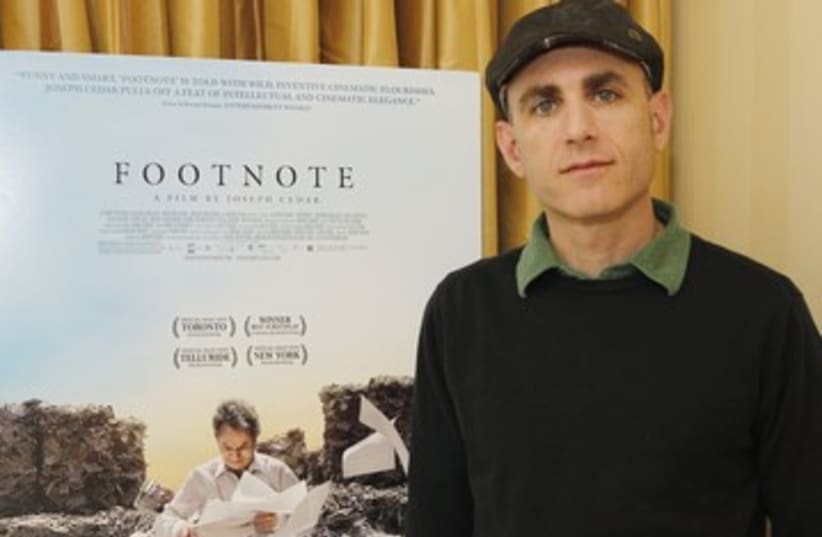A Separation has earned critical acclaim around the world at film festivals and other events with its tale of an Iranian couple on the verge of divorce whose problems grow ever more complicated when other people become involved in their lives.When asked recently by The Washington Post whether one bedridden old man weighing in on the couple’s issues represents the state, Farhadi chided the reporter, “If you have a political discourse about him, you are belittling this character.”While Iran is notorious for its film censors – award-winning director Jafar Panahi was sentenced to jail in 2010 and banned from making films – it has remained cautious in its remarks about A Separation.“Sometimes we see those who run these festivals grant precious awards to films whose main theme is centered on the poverty and hardships of a country’s people,” Foreign Ministry spokesman Ramin Mehmanparast told Reuters after A Separation won its Golden Globe Award in January.“This should not lead our artists to ignore the glaring positive points and features of our nation, and instead illustrate the kind of things welcomed by such festivals’ organizers,” he said.Farhadi has acknowledged adopting a non-partisan tone to get the film made in Iran, but not because of problems with censors.“No, I wasn’t confronted with any censorship,” he told Reuters. “Some countries did ask me, in order to show the film, that I should change the film’s title from what it is right now and I didn’t agree.”Cedar said he had briefly met Farhadi and looked forward to seeing him again in the “cultural arena” of Hollywood’s Oscars.“Putting aside all of these geopolitical sides, it [A Separation] is a film that really raises the level of the whole competition,” he said.
Israelis, Iranians set aside politics at the Oscars
Directors Joseph Cedar and Asghar Farhadi both say their nominated films have personal, not national themes.

A Separation has earned critical acclaim around the world at film festivals and other events with its tale of an Iranian couple on the verge of divorce whose problems grow ever more complicated when other people become involved in their lives.When asked recently by The Washington Post whether one bedridden old man weighing in on the couple’s issues represents the state, Farhadi chided the reporter, “If you have a political discourse about him, you are belittling this character.”While Iran is notorious for its film censors – award-winning director Jafar Panahi was sentenced to jail in 2010 and banned from making films – it has remained cautious in its remarks about A Separation.“Sometimes we see those who run these festivals grant precious awards to films whose main theme is centered on the poverty and hardships of a country’s people,” Foreign Ministry spokesman Ramin Mehmanparast told Reuters after A Separation won its Golden Globe Award in January.“This should not lead our artists to ignore the glaring positive points and features of our nation, and instead illustrate the kind of things welcomed by such festivals’ organizers,” he said.Farhadi has acknowledged adopting a non-partisan tone to get the film made in Iran, but not because of problems with censors.“No, I wasn’t confronted with any censorship,” he told Reuters. “Some countries did ask me, in order to show the film, that I should change the film’s title from what it is right now and I didn’t agree.”Cedar said he had briefly met Farhadi and looked forward to seeing him again in the “cultural arena” of Hollywood’s Oscars.“Putting aside all of these geopolitical sides, it [A Separation] is a film that really raises the level of the whole competition,” he said.